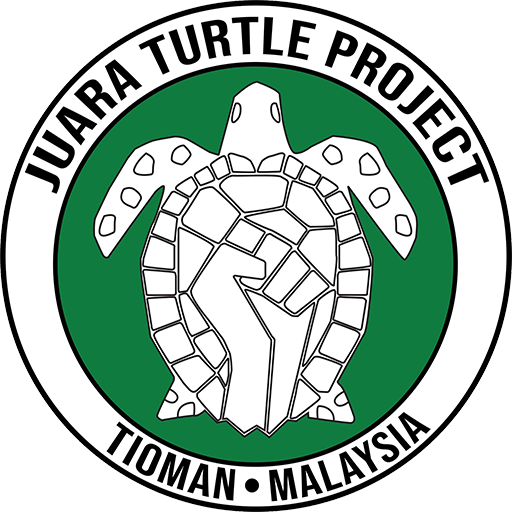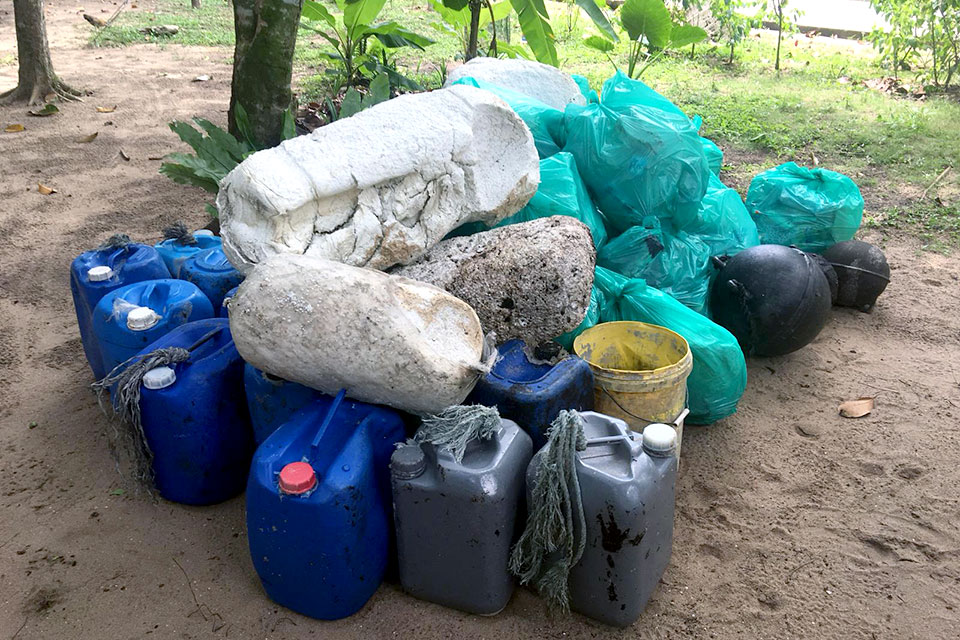On Saturday 8th June 2019, I experienced, for the first time, the true extent of the problem JTP and their volunteer face in their fight against pollution in general and plastics in particular. Of course, I have seen many beaches, jungles and landscapes suffering at the hands of thoughtless tourists and indifferent local populations but never have I seen, or has it occurred to me, the damage that can be inflicted on an isolated, uninhabited beach by the thoughtless, irresponsible humans amongst us who profess to love the ocean and it’s marine life while at the same time throwing all manner of discarded items ( mainly plastics) from their boats.
On our arrival at the beach we were all simply poleaxed at the sight before us. Every available crack or crevice among the rocks, every patch of sand or vegetation, every small water hole was filled with plastic drinking bottles, polystyrene foam pieces, drink cans, cigarette butts and cigarette packets, plastic straws, all conceivable manner of footwear, plastic fuel containers, rope, floats, pieces of net and fishing paraphernalia and an inconceivable amount of broken plastic pieces. All this on a beach no more than 150 metres long and 25 metres wide. In fact, in two hours a group of four of us (a fifth operating the boat) picked up and catalogued 62 pieces of fishing gear, 11 fuel containers, 82 pieces of footwear, 300 polystyrene foam pieces, 780 plastic drinking bottles and 50 miscellaneous pieces of other types of plastic rubbish (toothbrushes, cotton buds, bottle tops etc). And yet we had hardly scratched the surface. Many, many more expeditions of this type will need to be undertaken before this beach is cleared.
Perhaps if people realised the disastrous impact of mindlessly casting their unwanted rubbish into our oceans has on all our marine life, and particularly our seven endangered species of sea turtles, they would have pause for thought. Once in the ocean, a plastic bag, for example, takes on an amazing resemblance to a jellyfish. Algae starts to grow on the bag giving it the look and smell of food and a turtle will readily eat it and suffer disastrous consequences. Fishing nets entangle our larger marine life, turtles, dolphins, sharks and in cruel irony these creatures of the sea actually drown.
To pollute our oceans in this way is not only disrespectful and inconsiderate it is downright negligent.
Hopefully, by educating their volunteers and the many school children JTP show through their facility, we can stop, or at least slow down the amount of plastic we use and discard and when we do have plastic and other rubbish to discard we do so in a mindful, responsible way.


